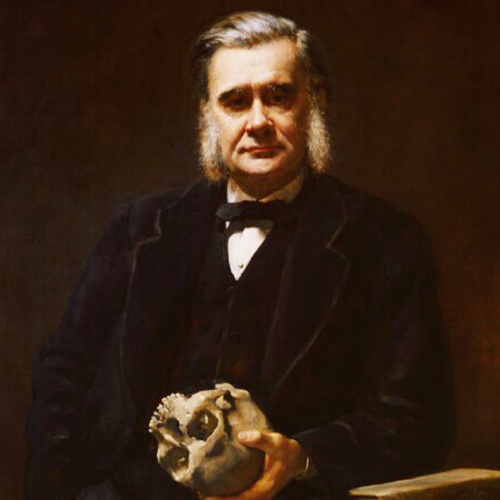

Thomas Henry Huxley was a man of science, a biologist, and educator. He helped to transform scientific study into a profession in Britain, forming and heading several institutions. He famously replied to Bishop Wilberforce in a debate on evolution in 1860 that he would rather be descended from an ape than a bishop. He coined the word ‘agnostic’ at a meeting of the Metaphysical Society, to clarify his position that debating God’s existence was pointless, untestable, and unknowable. He was a tireless and vociferous promoter of Darwin’s theory of evolution by natural selection, who became known as Darwin’s bulldog.
T.H. Huxley was born in Ealing, in 1825. He studied medicine at Charing Cross hospital, and although a medal-winning student, did not graduate. Along the way he discovered “Huxley’s layer”, one of the three layers of the inner root sheath of the hair follicle. To pay his debts, he sailed as assistant surgeon on HMS Rattlesnake, a four-year survey of marine biology. His study of jellyfish was published as On the Affinities of the Family of the Medusa in 1848. He also helped establish that ascidians (sea squirts) were the ancestors of vertebrates.
Back in London, Huxley struggled to find work at first, before taking on the post of Lecturer in Natural History at the Royal School of Mines. A host of other jobs would follow over the years. In 1855, he married Ann Heathorn, who he had become engaged to in Sydney eight years earlier; they had eight children, and nine grandchildren. The extended family included three famous grandsons: the writer Aldous Huxley, the evolutionist Julian Huxley, and the physiologist Andrew Huxley. The death of T. H. Huxley’s three-year-old son, Noel, from scarlet fever, was a severe shock, and he took no comfort from the words of the minister at the funeral.
Huxley helped to create the new professional class of scientists. He wanted a modern approach to the purpose, business, and rewards of science. In 1855, he started a very popular series of lectures for working men. The establishment of the scientific journal Nature followed in 1869, and the Normal School of Science in South Kensington in 1881 (later becoming part of Imperial College). He was also a prominent member of the X Club, a dining club of nine men who favoured science over theology, including the botanist Joseph Dalton Hooker, the physicist John Tyndall, and the sociologist Herbert Spencer.
His public lectures to the working class were a great hit; thousands of people tried to attend the inaugural Sunday Evenings for the People, in St Martin’s Hall, London, in 1866. His audiences delighted in being told that they were descended from apes, and this on a Sunday! But it was perhaps the debate with Bishop Samuel Wilberforce that put Huxley most predominantly in the public eye. In 1860, after the publication of Darwin’s On the Origin of Species by Means of Natural Selection, a large meeting of the British Association for the Advancement of Science (of which Huxley later became President) was convened at Oxford. One of the speakers was Bishop Samuel Wilberforce, who ridiculed the Origin of Species, Darwin, and Huxley. Wilberforce asked Huxley whether it was from his grandmother’s side, or his grandfather’s side, that he was descended from apes? Huxley, incensed by the jibe, replied that he would rather have for kindred an ape, than a man like the bishop.
The exact dialogue and events of the exchange have been variously reported. Admiral Fitzroy allegedly stood, lifted the Bible up and reaffirmed his faith. Lady Brewster allegedly fainted. Huxley was livid but unbowed. He had commented on natural biology, and not the Christian faith, in a legitimate debate about evolution. Darwin was grateful for champions such as Huxley, and Hooker (who gave a cooler response to Wilberforce). The nickname of Darwin’s bulldog came much later; there is evidence that Huxley applied it to himself in 1879.
Huxley’s reply to Wilberforce may be considered as one of the most important milestones in the development of non-religious thought in Britain. Science had taken on religion, in public, on the question of human origins, and the onus of proof had shifted to the theologians. Four years later, the Prime Minister, Benjamin Disraeli, famously asked whether man was ape or angel. While Disraeli was on the side of the angels, the question of the origins of man was now fair game in the new scientific context. From his own humble origins, Huxley had grown to be a popular organiser of scientific education, the President of the Royal Society, a leader of rationalism, and the inventor of a term with which many humanists identify themselves today. He died in 1895 and was buried next to his son, Noel, in St. Marylebone Cemetery, Finchley, London.
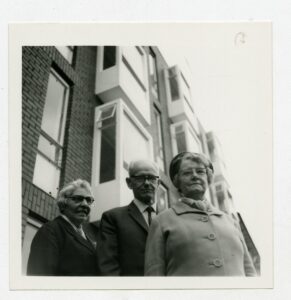
It is essential to get it recognised that good and graceful living is sufficient in itself; further, that this is […]
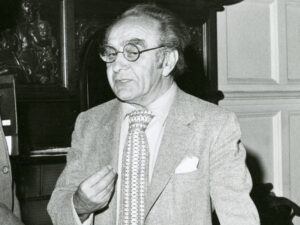
The notion that a man shall judge for himself what he is told, sifting the evidence and weighing the conclusions, […]
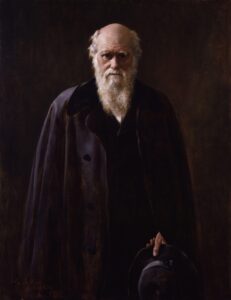
I cannot pretend to throw the least light on such abstruse problems. The mystery of the beginning of all things […]
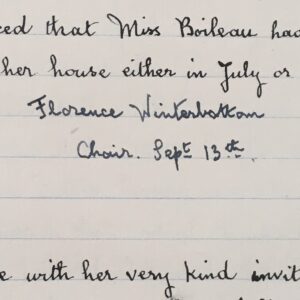
No one who came in contact with her failed to recognize in her fearlessness, honesty for the sake of honesty […]